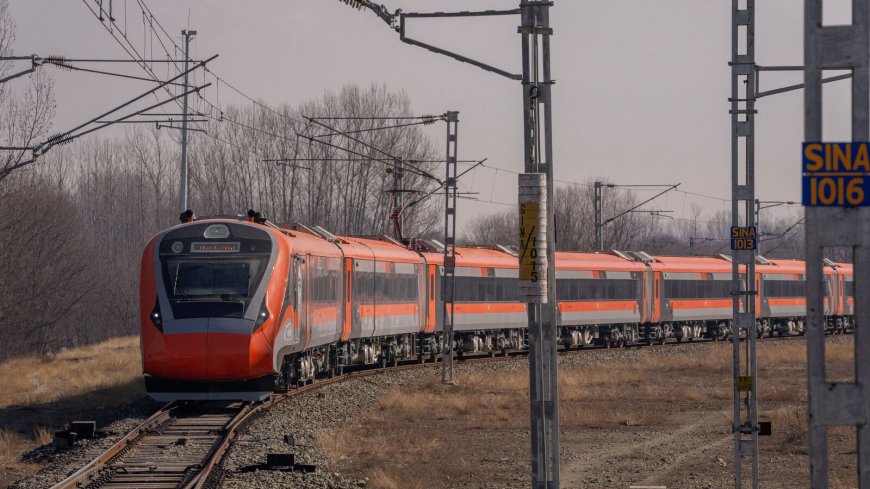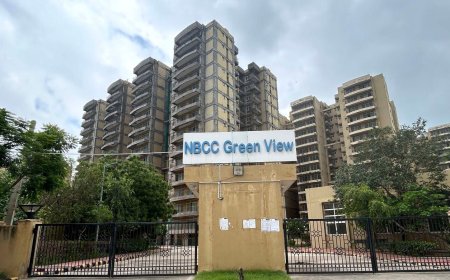IRCTC’s EBITDA Growth Rate Mirrors Pace of a Slow-Moving Train
Explore IRCTC’s latest EBITDA growth analysis, highlighting steady but slow financial progress amid evolving market dynamics. Insights from analysts and investor perspectives included.

New Delhi, June 5, 2025 — Indian Railway Catering and Tourism Corporation (IRCTC), a pivotal player in India’s rail travel ecosystem, has reported an EBITDA growth rate that analysts say is reminiscent of the steady but sluggish pace of a slow-moving train. While the company remains profitable and cash-positive, its financial performance in recent quarters highlights challenges amid a transforming travel and digital services landscape.
Steady But Slow: The Numbers Behind IRCTC’s EBITDA Growth
IRCTC’s latest quarterly results indicate an EBITDA growth rate hovering in the low single digits, a stark contrast to the explosive growth rates seen in India’s burgeoning technology and e-commerce sectors. For the fiscal year ending 2025, IRCTC reported an EBITDA growth of approximately 5%, which, while positive, falls short of investor expectations that were buoyed by the company’s dominant market presence in railway ticketing and ancillary services.
The company’s EBITDA margin, a key profitability indicator, remains healthy at around 35%. However, this margin has seen only incremental improvements compared to previous years, underscoring operational efficiencies that are being gradually unlocked but without any major breakthroughs.
Market Context: Navigating a Complex Operating Environment
IRCTC operates in a unique niche, blending government mandate with commercial enterprise. The company’s revenues primarily come from railway ticketing commissions, catering services, and tourism packages, all tightly linked to the performance of Indian Railways and the travel habits of millions of passengers.
The COVID-19 pandemic severely disrupted travel patterns, and although recovery has been underway since 2023, consumer preferences have shifted markedly towards private and budget airlines, as well as app-based cab services. This changing dynamic has tempered IRCTC’s growth prospects.
Moreover, increased competition from private online travel aggregators has forced IRCTC to innovate, including expanding into hospitality and non-railway ticketing services. While these initiatives offer long-term promise, their impact on EBITDA is yet to be fully realized.
Analyst Insights: Reasons Behind the Slow Growth
Industry analysts see multiple factors contributing to IRCTC’s measured EBITDA growth:
Ramesh Gupta, Senior Equity Analyst, Motilal Oswal Securities:
"IRCTC’s EBITDA growth mirrors a slow-moving train because while the company benefits from a monopolistic position in rail ticketing, the underlying business model is mature. Incremental revenue growth requires expanding into new verticals, which are still nascent and capital intensive."
Priya Malhotra, Equity Strategist, ICICI Securities:
"Operationally, IRCTC faces constraints imposed by regulatory oversight and infrastructure bottlenecks. Its catering and tourism businesses have seasonal demand, limiting consistent margin expansion. Additionally, digital competition is intense, pushing IRCTC to invest heavily in technology upgrades without immediate EBITDA payoffs."
What Does This Mean for Investors?
For investors, IRCTC represents a classic case of stability with moderate growth potential. Its steady cash flows and low leverage make it a relatively safe investment in a volatile market. However, expectations of rapid wealth creation might need recalibration.
Investor Outlook:
-
Long-term Value: IRCTC’s government backing and dominant market share ensure ongoing relevance, particularly as Indian Railways modernizes and increases passenger capacity.
-
Dividend Appeal: With a consistent dividend payout history, the company attracts income-focused investors seeking dependable yields.
-
Growth Catalysts: Potential growth drivers include expansion into non-rail tourism, enhanced digital payment services, and partnerships with private sector travel companies.
-
Risks: Regulatory changes, intensified competition, and slow adoption of ancillary services could restrain earnings growth.
The Road Ahead: Slow But Sure
Despite the tepid EBITDA growth, IRCTC’s future is not without promise. The company has been actively investing in technology, improving user experience on its ticketing platform, and enhancing its catering services through automation. The government’s push towards digitization and infrastructure upgrades on the rail network could unlock new revenue streams.
Investors should view IRCTC as a blue-chip stock that delivers consistent returns rather than a high-growth tech disruptor. Much like the Indian Railways it serves, IRCTC’s journey may be slow and steady but is unlikely to derail.
What's Your Reaction?
 Like
0
Like
0
 Dislike
0
Dislike
0
 Love
0
Love
0
 Funny
0
Funny
0
 Angry
0
Angry
0
 Sad
0
Sad
0
 Wow
0
Wow
0












































































